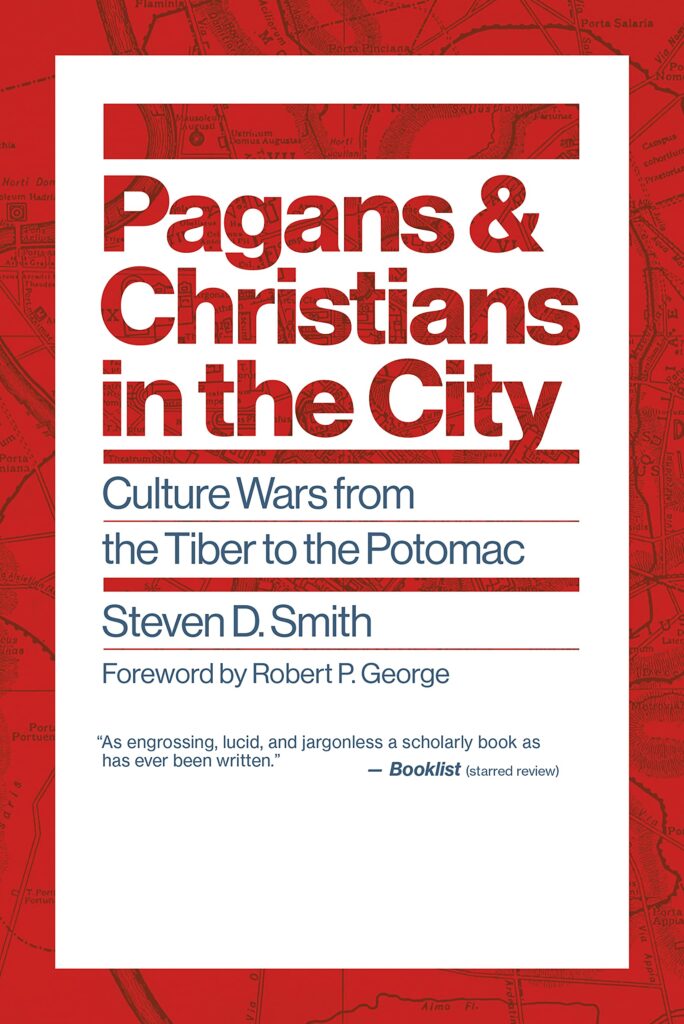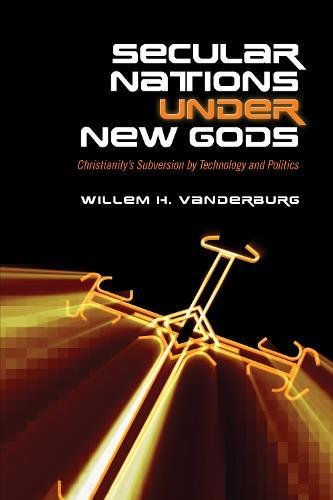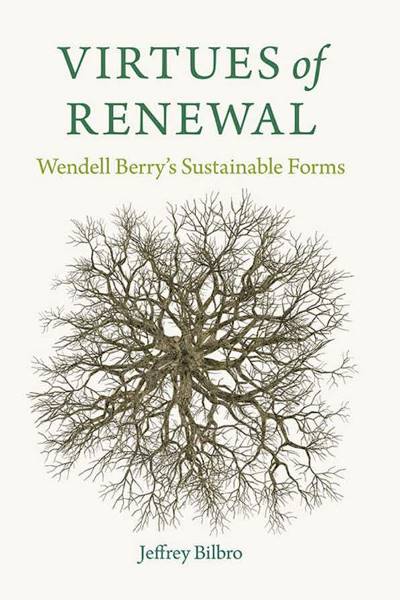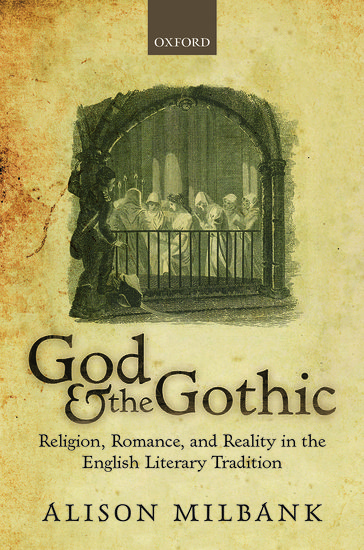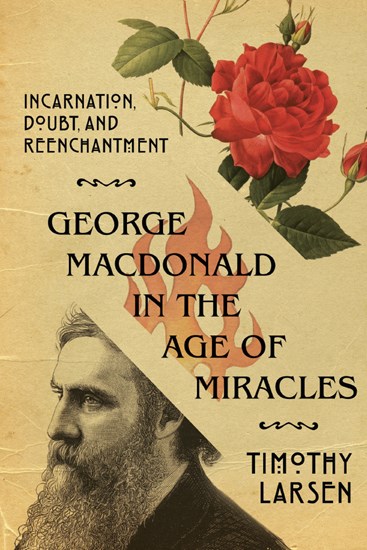PREVIEW
The player for this Journal volume is only available to current members or listeners with a legacy account. If you have an active membership, log in here. If you’d like to become a member — with access to all our audio programs — sign up here.
Guests heard on Volume 148
Steven D. Smith, author of Pagans and Christians in the City: Culture Wars from the Tiber to the Potomac, on how a modern “religion without God” characterizes what alleges to be secular neutrality
Willem Vanderburg, author of Secular Nations Under New Gods: Christianity’s Subversion by Technology and Politics, on the costs of forgetting the unity and interdependence of Creation
Jeffrey Bilbro, author of Virtues of Renewal: Wendell Berry’s Sustainable Forms, on lessons from Wendell Berry’s poetry, fiction, and essays about the virtues that characterize people who foster sustainable cultures
Emma Mason, author of Christina Rossetti: Poetry, Ecology, Faith, on the theological concerns evident in the poetry of Christina Rossetti
Alison Milbank, author of God and the Gothic: Religion, Romance, and Reality in the English Literary Tradition, on how the Gothic literary genre in England expressed ambivalence about the effects of the Reformation
Timothy Larsen, author of George MacDonald in the Age of Miracles: Incarnation, Doubt, and Reenchantment, on George MacDonald and Victorian earnestness about faith and anxieties about doubt (Archive Feature available)
Related reading and listening
- The recovery of an integrated ecology — In this essay, Michael Hanby unpacks the summons of Laudato si’ to an ecological way of life based on a proper understanding of creation in its fullness and integrity. (57 minutes)
- Poetry and Liturgy — Karen Dieleman explores the influence of liturgical practices on shaping the imaginations and poetry of Elizabeth Barrett Browning, Christina Rossetti, and Adelaide Proctor. (49 minutes)
- How social media truncates relationships — In this lecture, Felicia Wu Song explains how social media industrializes and monetizes our relationships, forming us in modes of relationships and identity that are detrimental to ourselves and to society. (41 minutes)
- Cultures of chance, cultures of control — Historian Jackson Lears explains how gambling springs from a longing for an experience of “unbidden beneficence,” a repudiation of the idea of control that marks modernity. (49 minutes)
- In technology, we live and move and have our knowing — George Parkin Grant on technology’s establishment of a framework for thinking about technology
- On the Degeneration of Attentiveness — Critic Nicholas Carr talks about how technology-driven trends affect our cultural and personal lives. (56 minutes)
- “The system will be first” — FROM VOL. 27 Robert Kanigel describes the transformation of work due to Frederick Winslow Taylor’s concept of scientific management. (11 minutes)
- Choices about the uses of technology — This Feature presents interviews with David Nye and Brian Brock related to how we evaluate adoption of new technology and how technology influences our thinking. (31 minutes)
- What it means to be a person — FROM VOL. 147 Sociologist Craig Gay argues that in order to address the challenges of a technological approach to the world, we need to recover the Christian tradition’s robust theology of personhood. (24 minutes)
- Voluntarily silencing ourselves — FROM VOL. 39 John L. Locke discusses the value of personal communication and how technology is displacing it. (12 minutes)
- Souls in cyberspace — FROM VOL. 25 Douglas Groothuis examines the worldview and mythology behind the creation and marketing of the Internet. (13 minutes)
- Life in a frictionless, synthetic world — FROM VOL. 17 Mark Slouka explores the worldview of techno-visionaries who aim to create a new era of human evolution. (11 minutes)
- The digital revolution and community — FROM VOL. 7 Ken Myers talks with Jane Metcalfe, the founder of WIRED Magazine, about technology and community. (8 minutes)
- Metaphysical impulses beneath techno-utopianism — FROM VOL. 38 Erik Davis describes his research on how humans’ fascination with technology is permeated with “mythic energy” and gnostic aspirations. (11 minutes)
- Post-Christian America and the “unlimited technological future” — George Parkin Grant on technology and the Puritan legacy of “unflinching wills”
- Education that counters alienation — In this lecture, Jeanne Schindler explores how digital technologies warp not only education but our experience of being human. (30 minutes)
- A prophetic “wake-up call” — In this 2024 lecture honoring the bicentennial of George MacDonald’s birth, Malcolm Guite explores MacDonald’s power to awaken readers’ spirits and effect in them a change of consciousness. (59 minutes)
- “You love the man at once” — Marianne Wright on the generosity and geniality of George MacDonald
- Perceiving truths that dazzle gradually — Rolland Hein on lessons from George MacDonald about the imagination as a spiritual faculty
- We wonder as they wander — Daniel Gabelman on the spiritual geography of George MacDonald’s fairyland
- Foolishness, gravity, and the Church — In this essay, Albert L. Shepherd V explains why George MacDonald’s story “The Light Princess” is meant for “all who are childlike in faith and imagination.” (8 minutes)
- Victorian ideas about belief and doubt — FROM VOL. 148 Timothy Larsen situates George MacDonald within a Victorian understanding of faith and doubt. (17 minutes)
- “Prophet of holiness” — Timothy Larsen discusses a new edition of George MacDonald‘s Diary of An Old Soul, a slim book of poem-prayers to be read daily as a devotional aid. (30 minutes)
- What is lost with labor-saving devices — Romano Guardini on what is lost when cultural pursuits eclipse natural order
- How fantasy restores the world — In this 2019 lecture, Alison Milbank shows how fantasy can help restore to us a vision of human flourishing that counters the atomization and meaninglessness of modern life. (43 minutes)
- The (super)natural theology of fairy-tales — Alison Milbank describes Chesterton’s belief that story-telling is an affirmation of transcendent meaning
- Technology and the kingdom of God — FROM VOL. 63 Albert Borgmann (1937–2023) believes Christians have an obligation to discuss and discern the kind of world that technology creates and encourages. (12 minutes)
- The gift of meaningful work — In this lecture, D. C. Schindler argues that genuine work is inherently meaningful and facilitates an encounter with reality and therefore, ultimately, with God. (36 minutes)
- Diverting language from its richest possibilities — FROM VOL. 75 Steve Talbott discusses the rich capacities of language and how technology diminishes them. (18 minutes)
- Mars Hill Audio Journal, Volume 162 — FEATURED GUESTS: Mark Noll, R. Jared Staudt, Paul Weston, William C. Hackett, Hans Boersma, and David Paul Baird
- Automation and human agency — FROM VOL. 150 Philosopher and mechanic Matthew Crawford laments the losses of human skill that correspond with gains in mechanical automation. (21 minutes)
- “A state of divine carelessness” — FROM VOL. 121
Daniel Gabelman attempts to correct the notion that George MacDonald prizes seriousness and sobriety. (20 minutes)
- No neutral view of the cosmos — Ken Myers argues that Christians need to recover a “whole-earth discipleship” that enables them to think Christianly about all areas of life, including public life. (50 minutes)
- Creation’s goodness and human faithfulness — J. Matthew Bonzo and Michael R. Stevens on Wendell Berry’s understanding of how Creation is a gift with certain givenness
- Productivity or thrift? — Wendell Berry contrasts an economy of productivity (which invites extravagance) and an economy of thrift (which takes care of things)
- The destructive logic of short-term thinking — Wendell Berry on the perils of ignoring the nature of Nature
- Seeking control, in white magic and The Green Book — Alan Jacobs on C. S. Lewis’s critique of the modern pursuit of god-like control
- Bilbro, Jeffrey — FROM THE GUEST PAGE: Jeffrey Bilbro is Associate Professor of English at Grove City College and Editor-in-Chief at the Front Porch Republic.
- Smith, Steven D. — FROM THE GUEST PAGE: Steven D. Smith is the Co-Director of the University of San Diego’s Institute of Law and Religion.
- Milbank, Alison — FROM THE GUEST PAGE: Alison Milbank is Professor of Theology and literature at the University of Nottingham and an Anglican priest, attached to Southwell Minster, where she is priest vicar and Canon Theologian.
- Mason, Emma — FROM THE GUEST PAGE: Emma Mason is Professor of English and Comparative Literary Studies at the University of Warwick, UK. Her research and teaching are focused on Christianity and literature.
- Larsen, Timothy — FROM THE GUEST PAGE: Timothy Larsen is McManis Professor of Christian Thought and Professor of History at Wheaton College (IL).
- Distributist & sustainable economics — Two interview from 2010: John C. Médaille summarizes how distributist economics differs from both capitalism and socialism. Then Herman Daly discusses the danger of economic theory abstracted from the actual stuff of Creation. (44 minutes)
- In the image of an Imaginer — Dorothy L. Sayers on the inevitability of analogical language about God (and everything else)
- Mars Hill Audio Journal, Volume 159 — FEATURED GUESTS:
Kirk Farney, Andrew Willard Jones, James L. Nolan, Jr., Andrew Kaethler, Peter Ramey, and Kathryn Wehr
- Life, liberty, and the defense of dignity — In a 2003 interview, Leon Kass discussed his book Life, Liberty, and the Defense of Dignity: The Challenge for Bioethics. The unifying theme in the book’s essays is the threat of dehumanization in one form or another. (36 minutes)
- The surrender of culture to technology — FROM VOL. 6Neal Postman discuses the ways in which how we think about the world has been influenced by communications technology, even in its earliest forms. (11 minutes)
- A.I., power, control, & knowledge — Ken Myers shares some paragraphs from Langdon Winner‘s seminal book, Autonomous Technology: Technics-out-of-Control as a Theme in Political Thought (1977) and from Roger Shattuck‘s Forbidden Knowledge: From Prometheus to Pornography (1996). An interview with Shattuck is also presented. (31 minutes)
- A George MacDonald symposium — Excerpts from four interviews talking about the work of George MacDonald: Michael Di Fuccia, Marianne Wright, David Fagerberg, and Daniel Gabelman. (28 minutes)
- George MacDonald on the imagination — Readings from two essays by George MacDonald about how the human imagination is “made in the image” of God’s imagination. (20 minutes)
